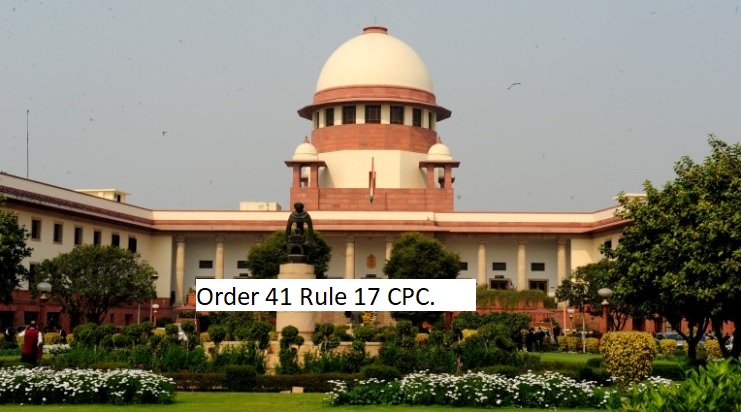


The matter at hand revolves around a legal dispute concerning property between the appellants and respondents, prompting the filing of a suit by the appellants seeking a permanent injunction against the respondents. However, their initial efforts were met with a setback when the Trial Court dismissed their suit. Undeterred, the appellants pursued the matter further by filing a second appeal before the Karnataka High Court.
The pivotal moment in this legal saga occurred when the appeal was listed for a hearing at the High Court. On this crucial day, the Junior Counsel, representing the appellants in the absence of the Senior Counsel, informed the court of a tragic event— the passing of the Senior Counsel's cousin brother. This unfortunate circumstance left the appellants without representation on the scheduled day of the hearing.
Despite this compelling reason for the appellants' non-appearance, the High Court took a decisive step by dismissing the appeal on its merits. The High Court's rationale was rooted in its finding that there were no substantive grounds to entertain the appeal. Dissatisfied and aggrieved by this outcome, the appellants sought recourse in the highest judicial authority, the Supreme Court.
In presenting their case before the Supreme Court, the appellants contended that while the High Court was within its purview to dismiss the appeal for non-prosecution due to their absence, a dismissal on the merits was unwarranted. They argued that the matter could have been appropriately addressed by dismissing the appeal based on procedural grounds rather than delving into the substantive merits of the case. Additionally, they pleaded for the possibility of a remand, urging the High Court to reconsider the appeal on its merits.
On the opposing side, the respondents countered the appellants' claims, asserting that the dismissal on merits was justified. They argued that the appeal lacked merit, and the High Court's decision was a result of the appellants' consistent failure to appear before the court.
The Supreme Court, composed of Justices BV Nagarathna and Ujjal Bhuyan, meticulously examined the contentions of both parties. In a nuanced interpretation of Order XLI Rule 17 of the Civil Procedure Code, 1908, the Court honed in on the crucial explanation embedded in the rule. This explanation categorically emphasized that the court's authority to dismiss an appeal for non-appearance did not extend to dismissing it on the merits. In other words, if an appellant fails to appear during the scheduled hearing, the dismissal should be attributed to non-prosecution rather than a substantive assessment of the case.
Given this legal backdrop, the Supreme Court delivered a decisive verdict. It observed that the High Court's dismissal on merits ran afoul of the clear provisions of Order XLI Rule 17. In light of this, the Court allowed the appeal and, significantly, reinstated it with the High Court. By doing so, the Supreme Court reinforced the importance of adherence to procedural rules, particularly emphasizing that dismissals for non-appearance should be rooted in non-prosecution rather than a premature judgment on the merits of the case.
This legal episode serves as a poignant reminder of the delicate balance between procedural justice and substantive considerations in the adjudication of appeals, highlighting the necessity for meticulous adherence to the established legal framework.
TAGS: Supreme Court Order 41 Rule 17 CPC Appeal Dismissal Merits Appellant Non-Prosecution